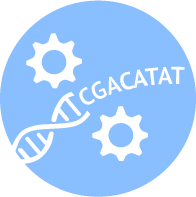The era of Genomic Medicine is here and InterGenetics, following closely the international developments, is once again a pioneer in this field, offering on a clinical basis the analysis of all human genes – whole exome sequencing (WES) and several multi-gene panels, being one of the first diagnostic genetic laboratories worldwide with this ability.
Analysis of the DNA sequence of all genes (WES) through Next Generation Sequencing – NGS technologies is the new genetic ‘super-weapon’, as it is theoretically in a position to reveal the molecular basis for any genetic disease in an affected individual, which has not been diagnosed through other available genetic testing options.
This type of testing is completely different from other known types of genetic tests, in terms of the number of genes which may be analyzed simultaneously.
Up to recently, the ‘classical’ approach to the diagnosis of genetic diseases was the targeted investigation of specific genes (1-5), suspected to be related to the observed phenotype. Nowadays, the application of NGS technology enables mass analysis of all ~22,000 human genes (WES) or even the simultaneous analysis of tens to hundreds of genes (gene panels), which are related to various disease categories with a genetic etiology.
Exome = the coding part of our genome = all known human genes. It includes ~22.000 genes, >160.000 exons, covers ~40-50 Mb (40-50 million bases) and includes the analysis of intron-exon junctions (splice sites).
Currently, whole exome sequencing and multi-gene NGS panels are useful:
- for uncovering pathogenic mutations, for rare (or complex common) genetic disorders
- for identifying pathogenic mutations, causing or predisposing for common genetic diseases, e.g. cancers, intellectual disability, autism
- for detecting pathogenic mutations in phenotypically related groups of disorders
